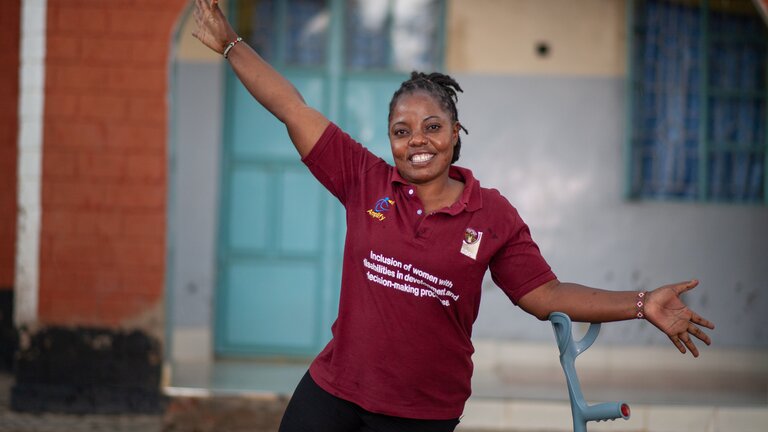"Persons with and without disabilities can both co-exist in the mainstream."

These words were said by Hellen Keller, one of the greatest women to have trod this earth. The school of people who see persons with disabilites as passive recipients of aid could have definitely ignored and shunt Hellen aside on account that she was both blind and deaf. Hellen Keller, though born with a disability, lived to rise to the title of doyen in the intellectual world of women. She toiled and moiled to achieve a bachelor of arts degree, and lived to erect an outstanding legacy that millions of persons without disabilities have not achieved in their life lifetimes.
Disability is not inability
The adage "disability is not inability“, further exudes how people with disability can equally get things done if given space in the mainstream. Therefore, actors in the scholarly and technological sectors should rise to the occasion and integrate people with; physical, cognitive, mental, sensory, emotional or even develop mental disability in their routine endeavours. Universities, being at the helm of education provision, should lead by embracing disability mainstreaming in their approach, since in the long run all students are equal, only differently gifted.
Modern technological inventions, need to be utilized by our universities, to bring disabled students on board. Such technology that can be capitalized on include: use of specialized computers, brail machines for the blind, convenient shuttle, appropriate wheelchairs, spiral stairs on storied buildings and all such machines that will bring disabled learners at par with their able counterparts in the same environment.
If disability mainstreaming will be achieved in our universities then the notion that persons with disabilities should be isolated will get erased, plus students with disabilities will improve their self esteem and social skills. Abled learners who go through these mainstream lectures, will form understanding, tolerance, and be prepared to deal with disability in their own lives-since disability is a state one finds himself or herself in without a prerequisite application. Finally, it will be fitting that universities achieve a mainstream approach so as to awaken the realization that all students are equal.
Kevin Egesa
